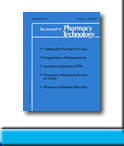 |
 |
CURRENT CONCEPTS IN THE
MANAGEMENT OF HEART FAILURE
Sumana Alex and Prafulla P
Mehrotra
To request full article click here.
OBJECTIVE: To give an overview of the epidemiology, etiology, and symptoms and signs of heart failure (HF), and the role of various therapeutic modalities that influence functional status, morbidity, and mortality in HF.
DATA SOURCES: Computerized search of the MEDLINE database (1976-1998) and review chapters from medical textbooks.
DATA EXTRACTION: Clinical trials evaluating the effect of drugs on morbidity and mortality of patients with HF.
DATA SYNTHESIS: HF is a clinical syndrome with high prevalence and mortality. The treatment approach varies depending on the etiology and type of HF. Several large-scale clinical trials with angiotensin-converting enzyme (ACE) inhibitors demonstrate improved survival and reduced hospitalization in patients with all degrees of HF. Several other trials report similar benefits in postmyocardial infarction patients with HF. Angiotensin II type 1 receptor blocking agents have also been shown to reduce morbidity and mortality in elderly patients with HF and may be used in patients who cannot tolerate ACE inhibitors. Therapy with hydralazine and isosorbide dinitrate also improves exercise tolerance as well as survival in patients with HF. The combination of these agents with ACE inhibitors may be useful in patients who remain symptomatic while taking ACE inhibitors. Such second-generation dihydropyridine calcium-channel blockers as amlodipine have also been shown to improve symptoms, exercise tolerance, and survival in nonischemic patients. Diuretics are effective in reducing the symptoms of HF resulting from fluid overload. Inotropic drugs such as digoxin may improve symptoms and reduce hospitalization for patients with HF but do not reduce overall mortality. Long-term, continuous use of inotropic agents, such as amrinone, milrinone, dobutamine, and high-dose vesnarinone, may improve quality of life but increase mortality in HF. Beta-blockers, particularly carvedilol, with vasodilating properties demonstrate positive survival results in patients with mild-to-moderate HF.
CONCLUSIONS: ACE inhibitors are the initial drug of choice in the treatment of HF; however, angiotensin II receptor antagonists may be used in patients who are intolerant to ACE inhibitors. Diuretics are useful mainly to control the fluid overload in HF. Digoxin is helpful in patients with atrial fibrillation and rapid ventricular response and in patients who are resistant to ACE inhibitors and diuretics. Hydralazine and isosorbide dinitrate therapy is valuable in patients whose symptoms cannot be controlled with optimal doses of diuretics, digoxin, and ACE inhibitors. Careful use of newer beta-blockers, with optimal titration of diuretics, in mild-to-moderate HF may help prolong life. Newer dihydropyridine calcium-channel blockers may be beneficial in nonischemic patients with HF.
J Pharm Technol 1998;14:228-239.
ACPE Universal Program Number: 407-000-98-055-H01
To request a copy of the complete article click here.
To request full article click here.
|
|
|
||
|

